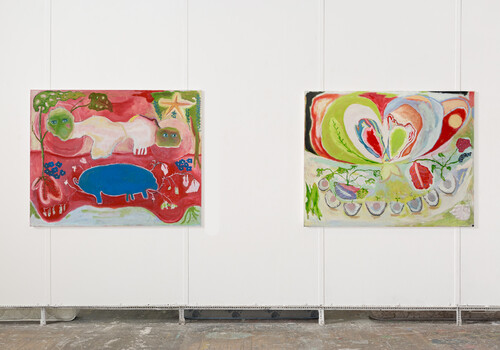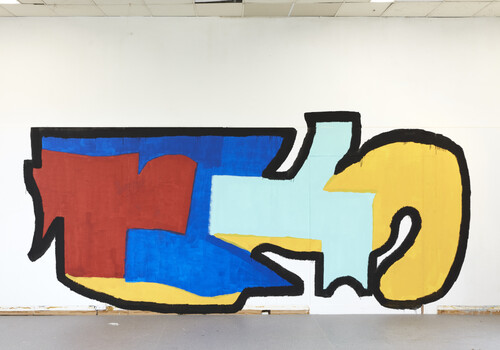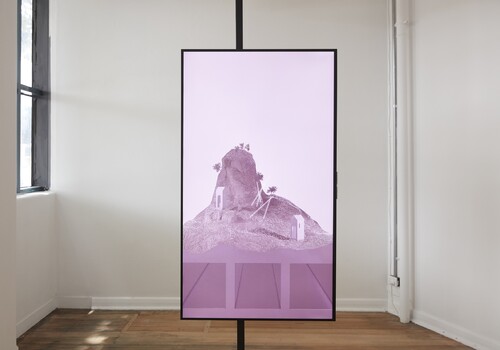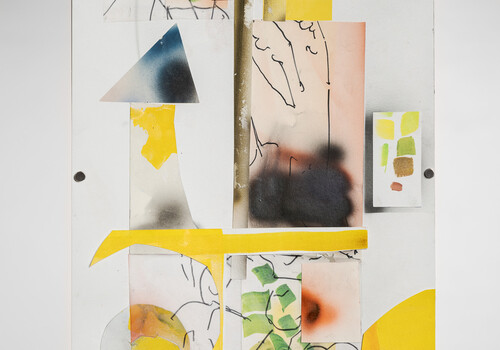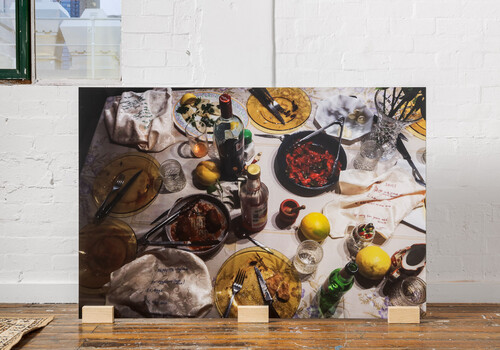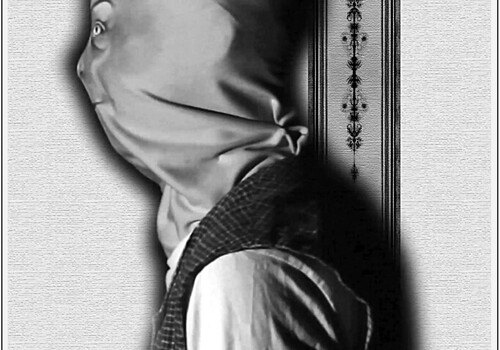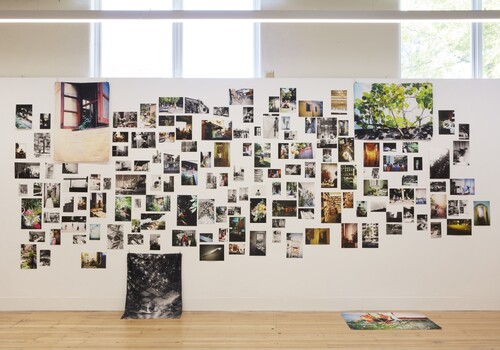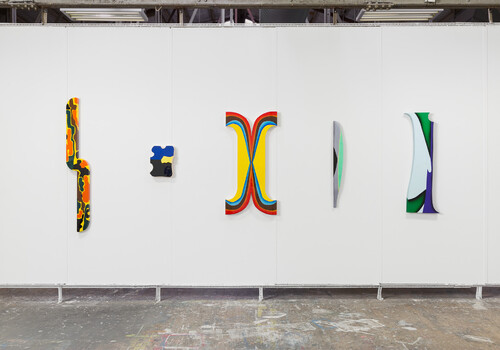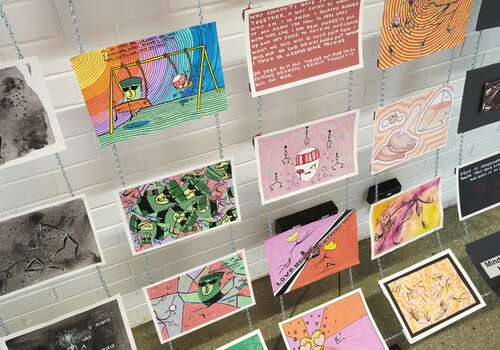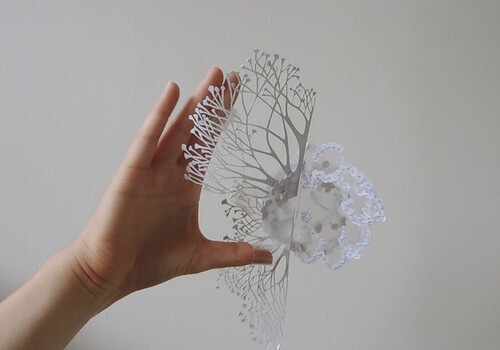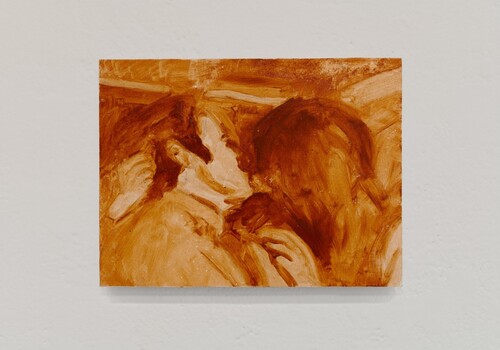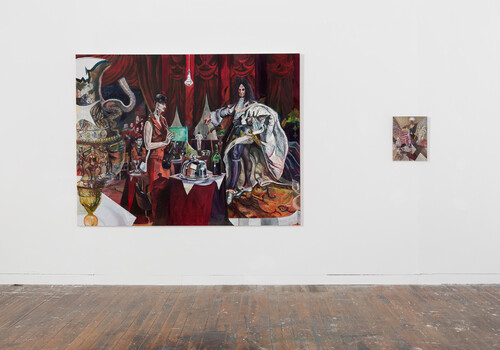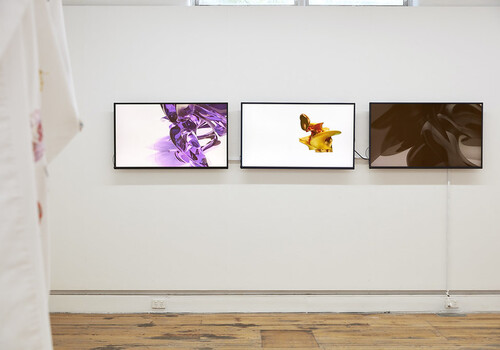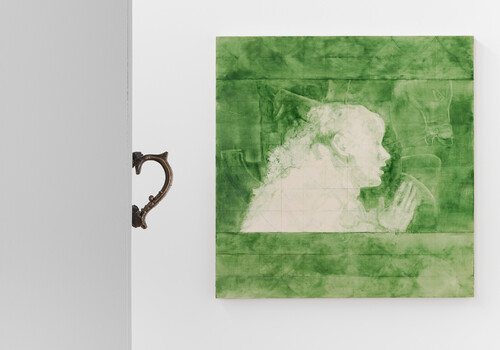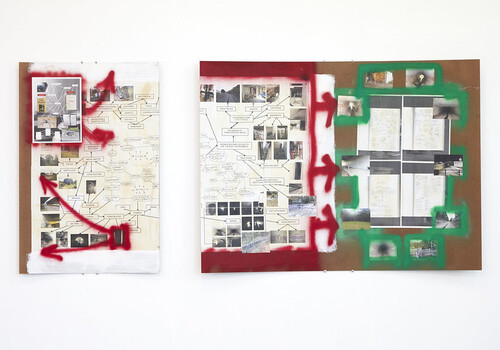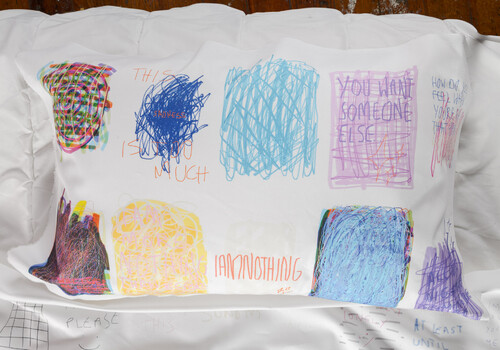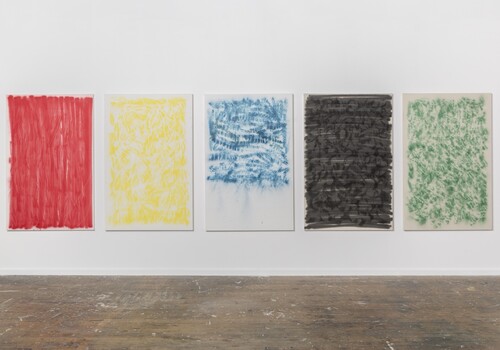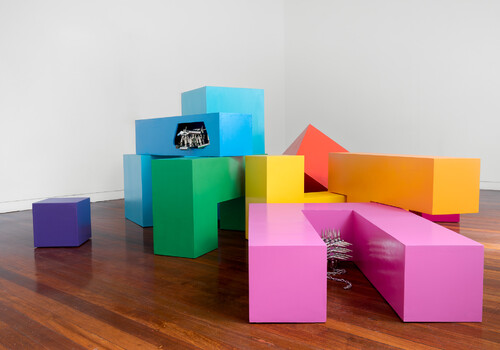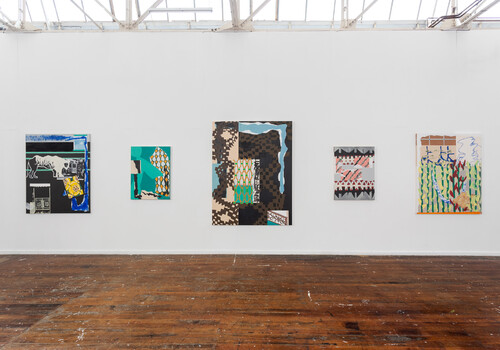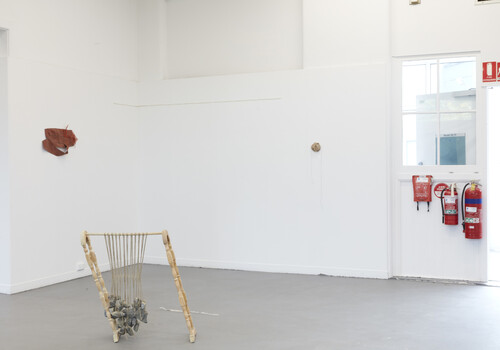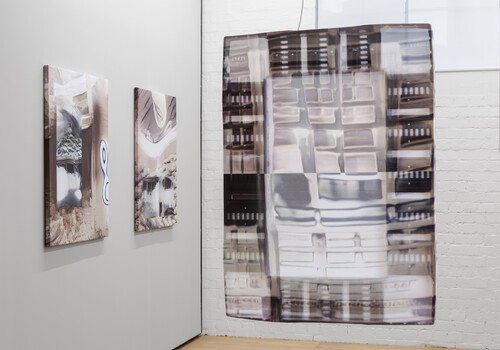Bachelor of Fine Art (Visual Arts), MADA
By Leonie Leivenzon
The hypnotherapy technique known as Ego State Therapy suggests that we are made up of multiple distinct personalities and, depending on what we are doing, certain aspects of ourselves will be dominant while others are hidden. Allowing the different personalities within us to communicate with each other helps us deal with challenges, as some Ego States will have tools that can offer solutions and guidance. In this unusual graduating year for Monash University BVA and BAHC courses, we find many students focusing their art making on exposing facets of identity requiring decisions about what is revealed or concealed.
Jacinta Leed’s work talks directly of these choices. The figures in her seven realistic oil paintings of suburban scenes titled Hindsight (2020) all direct their gaze away from the viewer. Painted on Perspex, the windows in the scenes have been left untouched allowing a glimpse through the work—serving to simultaneously reveal and conceal as we look through and beyond the image. Leed carefully directs what is hidden and what is seen as her figures go about their everyday activities, revealing the inner lives, which we were all forced to rely on during months of isolation.
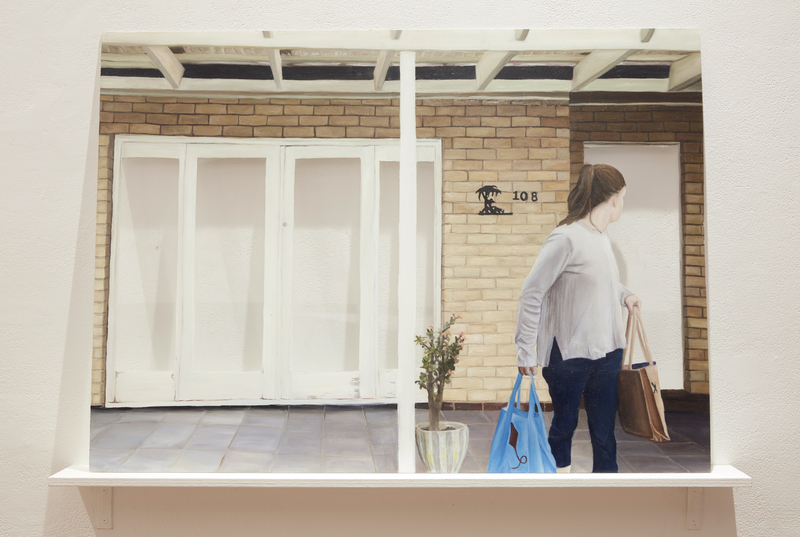
Caitlyn St. Onge, on the other hand, overtly exposes herself and her experiences of mental illness. A trigger warning at the entrance advises that the work, 9 Circles of Hell (2020), addresses themes such as suicide and self-harm. This subject matter is presented with multiple bright, colourful paintings hung in a dense grid on chains and a short, animated film. Watching a thin, alien-like body splitting in two yet remaining connected with numerous nerve-like tendrils on the screen laid on the floor, I wonder which ‘Ego State’ remains upright and which slithers down to the ground.
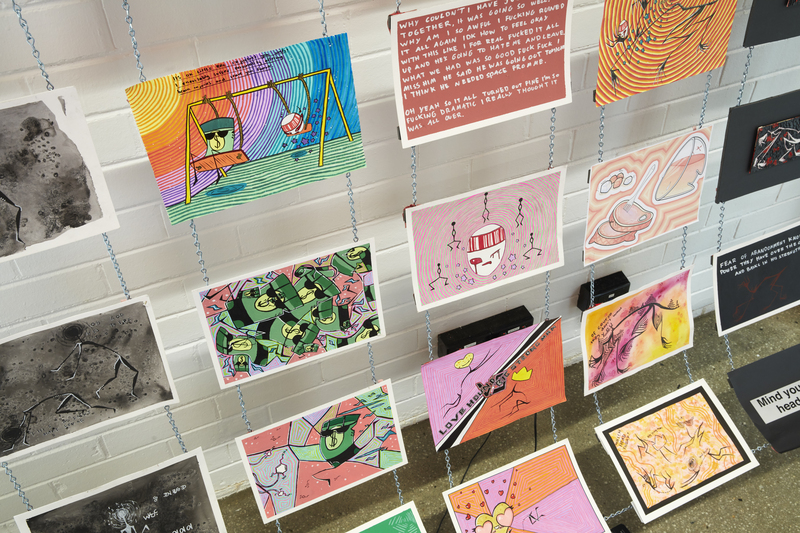
A series of nine mixed-media photographs by Phuong (Stella) Duong reveal an alter ego, the spirit Kitsune, whose face is hidden by a white and red cat-like mask. Portrayed sitting on the couch with a cup of tea, we see that even spirits live everyday lives during a pandemic. We see Kitsune staring thoughtfully out the window or with their head resting on their arms and are let into a world in which the mask and costume are unable to hide a sadness and loneliness.
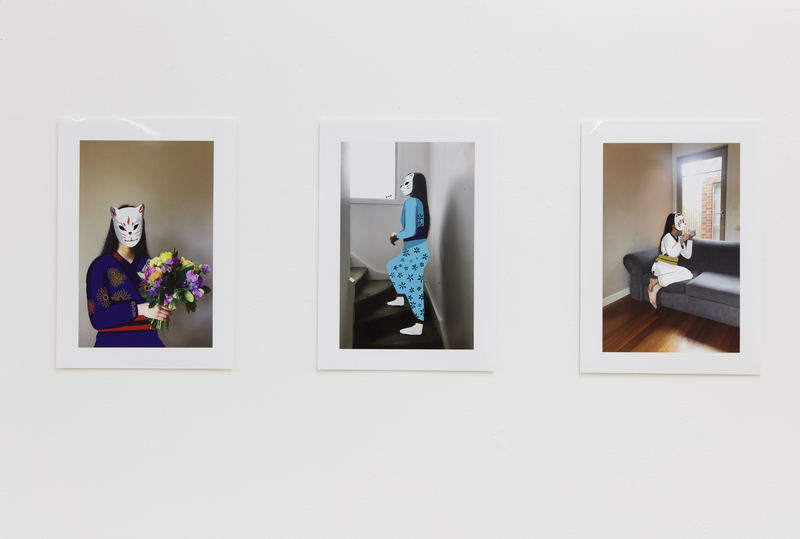
Painted Personalities (2020) by Sofia Larkin is a beautiful, subtle rendition of how the artist’s synaesthesia impacts her understanding and representation of the people around her. A series of non-figurative watercolours with names below them appear as abstract landscapes offering delicate aura-like colour field embodiments of the personalities they portray. Rather than being purely introspective, Larkin’s ability to highlight an aspect of herself while depicting her vision of others allows the viewer to peer deep into the artist as well as her subjects.
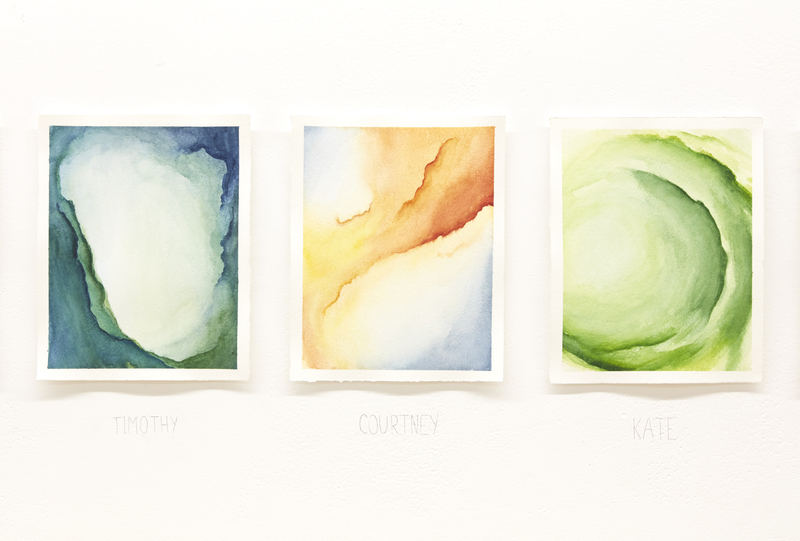
Other works, such as Dione Yip’s The Wrongly Convicted (2020), in which people of different cultural backgrounds hold signs inscribed with racist presumptions that have been said to them, and Emily Keagan’s one-way Conversation (2020), where we observe the wordless responses to an unheard conversation, also address similar themes of what we reveal of ourselves and what others choose to see. In a year where hiding oneself from the world has been as simple as switching off the video on Zoom, it is not surprising to see a theme of introspection from the class of 2020, which perhaps also accesses the personalities within us that can allow for healing.
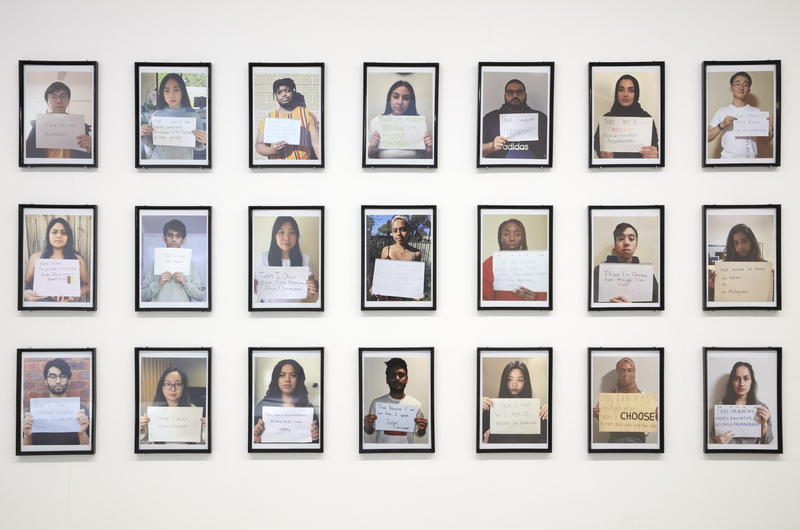
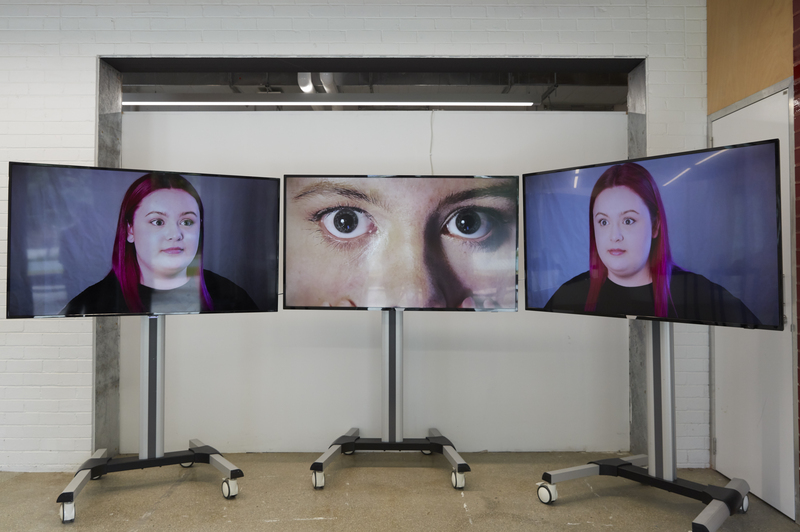
Leonie Leivenzon is a 2020 graduating Bachelor of Fine Art student from Monash University. Her work focuses on exploring the nature of objects and their ability to generate connections and tell stories.
